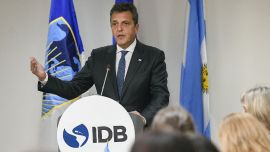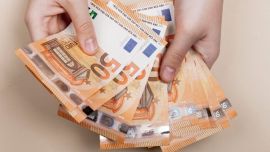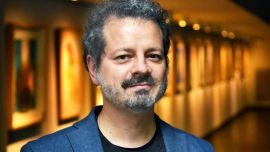Economy minister and ruling coalition presidential candidate Sergio Massa announced from Washington on Tuesday that the World Bank and Inter-American Development Bank have approved loans for Argentina worth some US$1.3 billion.
Massa, 51, confirmed the news during his ongoing trip to the United States. He is also due to meet with officials from the International Monetary Fund for talks over Argentina's US$44-billion debt programme while in Washington.
The minister's day began with a meeting with the managing director of World Bank operations, Anna Bjerde, with whom he closed two financing programmes.
Outlining the deals at a press conference, Massa revealed that the first, worth US$450 million, is focused on food security, while the other, some US$200 million, is aimed at small- and medium-sized businesses. It will guarantee them access to credit for importing and the rapid liquidation of foreign currency for exporting, said the minister.
During his visit to Inter-American Development Bank headquarters, Massa held talks with its Brazilian president, Ilan Goldfajn. Their meeting ended with the announcement of US$650 million in funds for three purposes: to finance a bridge between the provinces of Corrientes and Chaco, to improve the Salto Grande dam that Argentina shares with Uruguay, and to increase knowledge economy exports.
In total, some "US$1.3 billion in additional financing" had been secured, declared Massa.
According to the minister, the credit-lines will "finance development projects" and be "fundamental to continue strengthening reserves" at the Central Bank, which "in the last 21 days have accumulated US$1.7 billion."
Argentina, with inflation running at 113 percent annually, is experiencing a severe shortage of international reserves amid high demand for dollars, the currency citizens turn to as a refuge from soaring prices.
Massa will also meet on Tuesday with officials from the US Treasury Department officials to "review the bilateral relationship in terms of trade for the next 120 days," he said.
IMF talks
The main event of Massa's trip will take place on Wednesday, when he will meet Kristalina Georgieva, the IMF's managing director.
Talks will focus on the US$44-billion 30-month credit programme, under which Argentina receives funds in exchange for the Central Bank increasing its international reserves and the government's reduction the fiscal deficit.
The minister timed his two-day visit to coincide with a meeting of the Fund's executive board meeting, which on Wednesday should approve a new disbursement of US$7.5 billion corresponding to the fifth and sixth reviews of Argentina's extended fund facility deal.
While awaiting the transfer, which is usually a formality, Argentina had to resort, as it has done on other occasions, to alternatives to honour its debt commitments to the multilateral lender. Its last maturities in August were paid down via a loan from Qatar, with yuan from an ongoing currency swap with China and via a bridge loan from the Andean Development Corporation (CAF).
Of the US$7.5 billion likely to be disbursed by the IMF, Argentina will therefore have to transfer part of the funds to Qatar, China and the CAF and keep another part as provisions for the next maturities.
As a result, Massa is seeking more than the US$7.5 billion due – he also wants to increase the amount and, as he explained, "review the entire disbursement procedure" because his country is going through "perhaps the most tragic year in terms of the economy" due to the impact of a devastating drought.
Electioneering
Last week, after tumultuous primary elections, Argentina moved to devalue its currency by around 20 percent – a step the IMF had previously sought.
Speaking at the press conference at IDB headquarters, Massa admitted that the move would have "an inflationary impact" that in August will cause "damage to people's pockets. He said he hoped price rises would moderate in September and October.
While in Washington, Massa is alternating his two functions: as economy minister and as a presidential candidate in the October elections for the ruling Unión por la Patria coalition.
After seeing off rival Juan Grabois in his internal coalition primary, his new electoral challenge is Milei, the libertarian lawmaker who emerged as the most popular candidate in the primaries.
Milei, an outspoken economist, wants to introduce radical proposals such as dollarising the economy and eliminating Argentina's Central Bank (BCRA), which sets interest rates and attempts to control inflation.
Massa says that the United States is used to seeing "the appearance of these anti-political or extra-political phenomena" in the region, but that "they do worry about the idea of someone promising to build the economy using their own currency".
"I suppose that those who are now offering Argentines dollarisation to be able to use dollars in Argentina must have had some kind of permission or some kind of talk," he said, referring to Milei without naming him.
"I understand that it will not just be an electoral story," he added, "but that it will have some kind of correlation with talks with the US Federal Reserve or the US Congress," added Massa.
– TIMES/AFP





















Comments